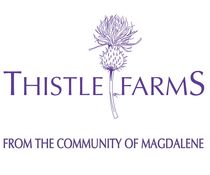















Southern Exposure
The Unmistakable, Unforgettable Tori Taff
A familiar face to fans of Bill and Gloria Gaither and the Homecoming Friends, Tori Taff is married to a multiple Grammy Award-winning vocal powerhouse whose career accomplishments have straddled genres and spanned generations, but any casual observer is sure to note that Tori is much more than merely Mrs. Russ Taff.
With great songs to her credit, Tori is a Grammy-nominated songwriter. A contributor to Homecoming magazine and a voice for Homecoming Radio, she is an engaging writer and host. Through her blog and social networking, her dedicated followers regularly receive an entertaining and often thought-provoking dose of inspiration and humor in her typical common sense, tell-it-like-it-is fashion. And nobody, absolutely nobody, can provide a "play-by-play" commentary on an awards show or concert quite the way Tori can. On September 15, 2011, she posted on Facebook from the National Quartet Convention in Louisville: "Cute little Wes Hampton looks so happy standing up there singing between Steve Green & Marsh Hall..." At the Gospel Music Association's Dove Awards in 2012, she tweeted, "Russ had to pull his underwear up to sing in that key." And the Golden Globe Awards on January 12, 2014 prompted her to make a number of.....um.....interesting observations, including, "Matthew McConaughey always seems about two drinks away from playing bongos buck nekkid again." Never a dull moment with her, I tell ya!
With great songs to her credit, Tori is a Grammy-nominated songwriter. A contributor to Homecoming magazine and a voice for Homecoming Radio, she is an engaging writer and host. Through her blog and social networking, her dedicated followers regularly receive an entertaining and often thought-provoking dose of inspiration and humor in her typical common sense, tell-it-like-it-is fashion. And nobody, absolutely nobody, can provide a "play-by-play" commentary on an awards show or concert quite the way Tori can. On September 15, 2011, she posted on Facebook from the National Quartet Convention in Louisville: "Cute little Wes Hampton looks so happy standing up there singing between Steve Green & Marsh Hall..." At the Gospel Music Association's Dove Awards in 2012, she tweeted, "Russ had to pull his underwear up to sing in that key." And the Golden Globe Awards on January 12, 2014 prompted her to make a number of.....um.....interesting observations, including, "Matthew McConaughey always seems about two drinks away from playing bongos buck nekkid again." Never a dull moment with her, I tell ya!
Those Wonderful Ads!
Older issues of Grier's Almanac are desired by collectors because of the advertising. Within the pages of the 1934 issue (pictured below right), one can find ads for Bayer aspirin, Cheney's Expectorant (for coughs) and Feen-a-mint ("The Laxative That's Just Like Chewing Gum"). While these products were quite common and widely used at the time, a few other items were offered by more obscure companies, and following are just a few of the standouts:
Lots of Useful Stuff, Too
Besides a few hilarious ads and plenty of legitimate promotions, Grier's Almanac contains a helpful gardening calendar, zodiac information, a religious section, a chronological listing of memorable events and informing general interest articles.
Older issues of Grier's Almanac are desired by collectors because of the advertising. Within the pages of the 1934 issue (pictured below right), one can find ads for Bayer aspirin, Cheney's Expectorant (for coughs) and Feen-a-mint ("The Laxative That's Just Like Chewing Gum"). While these products were quite common and widely used at the time, a few other items were offered by more obscure companies, and following are just a few of the standouts:
- 6 6 6 a remedy for colds, headache, fever, biliousness, malaria and constipation available in liquid, tablets, nose drops and a salve! (Editor's note: I'd have to be pretty miserable before I would take something called "666.")
- Smith's Worm Oil, a product of the Galenol Company, Inc. of Atlanta. Described as "one of the oldest and most reliable worm medicines sold."
- Lydia E. Pinkham's Vegetable Compound, a "tonic and regulator" for "girls in their teens." The ad states, "Teach her how to guard her health at this critical time . . . When she is a happy, healthy wife and mother she will thank you."
- Securitee, a "renowned prescription in a jellied form" described as the "married woman's sure, safe method." "Are you financially able to take care of babies and give them the proper attention?," the ad asks. "If not it may be best to delay." Haven't times changed? Today, there is considerable debate over whether school kids should learn about contraception and the prevention of sexually transmitted diseases at younger and younger ages. In 1934, amid the Depression, an ad offering some form of pregnancy prevention made no mention of the word sex, of course, but its intent was pretty clear. "Every married couple should have babies, but it is a great injustice to bring the little darlings into the world if all conditions are not just right." Interesting to note, 1934 was probably not one of those years in which conditions were "just right" for raising children for most southern couples.
- Lucky Las Vegas Cologne (Editor's note: If you're willing to throw away your money at the casinos, spending $5.55 on this stuff probably can't hurt!)
- Dragon's Blood Uncrossing Bubble Bath, "used to destroy jinxes" (Editor's note: A normal shower with soap and water suits me just fine. Jinxes don't scare me.)
- "Make Opposing Lawyer Stupid" Oil and Candle (Editor's note: This must have been used by the O. J. Simpson defense team. Oops, I shouldn't have said that!!!)
- "Stop Evil" Spray Cleaner "Chase evil out of home, church, business," says the ad. (Editor's note: Obeying the Bible and saying, "Get thee behind me, Satan," has always worked for me!)
Lots of Useful Stuff, Too
Besides a few hilarious ads and plenty of legitimate promotions, Grier's Almanac contains a helpful gardening calendar, zodiac information, a religious section, a chronological listing of memorable events and informing general interest articles.
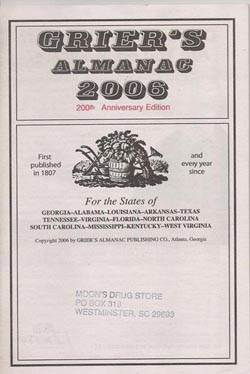
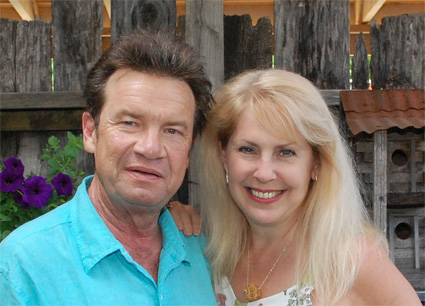
Since I was a teenager, I have been a huge fan of Russ Taff, and I still declare his Under Their Influence album is one of the greatest Christian music projects of all time. When I shared with Tori that I've got to be one of Russ' biggest fans, she replied, "Oh, my gosh! Me, too!" As I segued from talking about Russ' influence on me to the reasons why I wished to interview her, Tori said, "I appreciate that, and we can talk dirt about Russ if you want to. He's out of town!"
Copies of Grier's Almanac are distributed via drug stores, feed & seed dealers and direct mail.
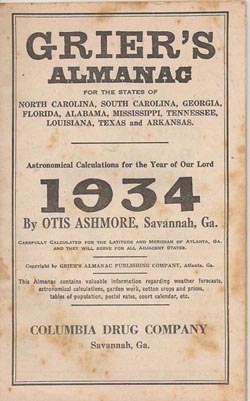
John I. Carney, Times-Gazette (Shelbyville, Tennessee)
Still, there is a serious side to Tori that I uncovered recently after we managed to make our schedules mesh following a couple of interview attempts. My call with her wound up lasting some forty-five minutes. Normally, I publish brief interviews verbatim in a Q & A format, but our conversation presented me with the challenge of determining what to quote and what to omit. Needless to say, had we been given another forty-five minutes, we could have probably found solutions to all sorts of crises and drafted lasting peace treaties between warring nations. Instead, we limited our discussion to what is closest to her personally, and I hope you, the reader, enjoy becoming better acquainted with Tori as much as I did.
The Women She Comes From
Interestingly, a song Tori wrote with Bonnie Keen, a founding member of the critically acclaimed vocal group, First Call, stoked my interest in interviewing her. There are a lot of good songs out there, and I dare say I have written one or two, but once in a while songwriters are able to hit the proverbial home run. I had an opportunity to hear "The Women I Come From" well before Bill & Gloria Gaither's Women of Homecoming released in 2013. The song slayed me, and Tori shares how it was written:
The Women She Comes From
Interestingly, a song Tori wrote with Bonnie Keen, a founding member of the critically acclaimed vocal group, First Call, stoked my interest in interviewing her. There are a lot of good songs out there, and I dare say I have written one or two, but once in a while songwriters are able to hit the proverbial home run. I had an opportunity to hear "The Women I Come From" well before Bill & Gloria Gaither's Women of Homecoming released in 2013. The song slayed me, and Tori shares how it was written:
For nearly half a century, Thomas P. Ashmore made the astronomical calculations for Grier's Almanac. Upon his death in 1882, he was succeeded by his nephew, Otis Ashmore. A Savannah educator and scientist, Otis Ashmore saw the almanac fall on hard times. It was in 1912 that Frank Lamar Fleming of John B. Daniel, Inc., an Atlanta wholesale drug company, acquired the publication at a Savannah bankruptcy auction. In spite of the ownership change, Otis Ashmore remained with Grier's, making astronomical calculations until his death in 1934. Pictured is his last issue.
When we wrote that song, we went to a writer's room. You know, publishing companies have writers' rooms if you wanna work. For whatever reason, we decided to try that instead of our living rooms, which is where we usually do it. We went to ASCAP, and there was an upright piano in the corner, a table and a couple of chairs. We had thought ahead without telling the other one, and brought some things that were kinda symbolic to us. Bonnie had a picture of her great-grandmother, who, I believe, was a six-feet tall, flaming red-haired woman, and was dressed in a pre-Victorian outfit. She had a very determined look on her face. And Bonnie said, according to family legend, her personality was just what she looked like. We brought pictures of children, and I had a family picture. I'm the youngest of six children. That sorta set the tone.
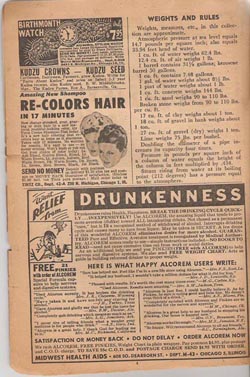
Tori Taff's long-time friend, Bonnie Keen, who co-wrote this song with her, is featured in this video with my friend and songwriting partner, Babbie Mason, and TaRanda Greene. This performance is part of Women of Homecoming, Volume Two.
With the intention of honoring the strong women in their families. Tori and Bonnie went to work. "It came fairly quickly and easily, which doesn't always happen with me....or Bonnie," Tori says. "It kinda flowed out. And we crafted it. And nitpicked it. And made it what it is. And let it alone. It said what we wanted to say." When Bill Gaither opted to use the song on the Women of Homecoming project, Tori points out that it was especially meaningful: "I've known so many of the women in that room for a long period of time. When they say 'Homecoming Family,' they're not kidding. My girls have grown up with them very much as an extended family. To be in that energy and surrounded by women, and to have Bonnie stand up and sing that song so beautifully with TaRanda [Greene] and Babbie [Mason], was a tremendous experience for me. And I had just lost my mom at the end of March [2013]. It was still pretty raw. Like I said on the video, I can't feel too sorry for myself because she was ninety-six and died in her sleep, and I'd had her all these many years, but I just miss her like crazy."
In response, I said, "But don't you think it's kinda like a passing of the torch?" Tori replied, "I agree." When I suggested that before long her girls might reflect on how she is impacting their lives for the long haul, Tori laughed, "It'll probably come up in therapy. There'll be a therapist there who says, 'She doesn't sound that bad!'"
As the conversation returned to her own mother, Tori's wit turned to poignant reminiscing: "My mother....she had shoes impossible to fill. She was of another generation. She was of that.....what the book called 'The Greatest Generation.' A child of the Depression, she was barely five feet tall, but she was just a pistol. And she was just a survivor. Of course all the favorite women in my life would qualify as that."
Recalling evenings spent on the front porch of their former Nashville residence, Tori shares how she would sing to her children in the porch swing. When Bonnie sang the verse, "And now I have my own child beside me....." at the Gaither taping, Tori says, "I turned, and my Madi Rose was sitting right there beside me, and it just kinda undid me. And I cried all that carefully applied makeup right off my face."
"As long as there is love, we will stand."
It didn't take long for our discussion to turn to a song that is destined to stand the test of time. I know for certain that "We Will Stand," written by Russ, Tori and James Hollihan, appears in at least one hymn book, because my country Baptist church uses the Celebration Hymnal: Songs and Hymns for Worship (Word/Integrity Music), in which the song's chorus is included. And, no doubt, it will go down in history as one of the most important contemporary Christian songs ever recorded.
"We Will Stand" first appeared on Russ' Walls of Glass (1983) album, which garnered him a Grammy Award from the Recording Academy. "That one was really Russ," Tori concedes. "I helped him, but that one really came out of Russ." Tori proceeded to explain the co-writing process through which she and Russ craft many of their songs, but she acknowledges how the song came about some three decades ago. "I'm embarrassed to say this, but it's the truth. Russ was downstairs in our little one-bedroom apartment, writing away in the middle of the night.....'cause we were young. And he came upstairs and woke me up to read me the chorus. I remember rolling over sleepily and listening to it. And, with my genius songwriting skill, I believe my one and only comment at three o'clock in the morning was, 'Yeah, I like it, but don't you think it's kinda been said before?'" Fortunately, a second listen the following morning convinced Tori that Russ had written a brilliant lyric, and they began tweaking it into the song we love today.
In response, I said, "But don't you think it's kinda like a passing of the torch?" Tori replied, "I agree." When I suggested that before long her girls might reflect on how she is impacting their lives for the long haul, Tori laughed, "It'll probably come up in therapy. There'll be a therapist there who says, 'She doesn't sound that bad!'"
As the conversation returned to her own mother, Tori's wit turned to poignant reminiscing: "My mother....she had shoes impossible to fill. She was of another generation. She was of that.....what the book called 'The Greatest Generation.' A child of the Depression, she was barely five feet tall, but she was just a pistol. And she was just a survivor. Of course all the favorite women in my life would qualify as that."
Recalling evenings spent on the front porch of their former Nashville residence, Tori shares how she would sing to her children in the porch swing. When Bonnie sang the verse, "And now I have my own child beside me....." at the Gaither taping, Tori says, "I turned, and my Madi Rose was sitting right there beside me, and it just kinda undid me. And I cried all that carefully applied makeup right off my face."
"As long as there is love, we will stand."
It didn't take long for our discussion to turn to a song that is destined to stand the test of time. I know for certain that "We Will Stand," written by Russ, Tori and James Hollihan, appears in at least one hymn book, because my country Baptist church uses the Celebration Hymnal: Songs and Hymns for Worship (Word/Integrity Music), in which the song's chorus is included. And, no doubt, it will go down in history as one of the most important contemporary Christian songs ever recorded.
"We Will Stand" first appeared on Russ' Walls of Glass (1983) album, which garnered him a Grammy Award from the Recording Academy. "That one was really Russ," Tori concedes. "I helped him, but that one really came out of Russ." Tori proceeded to explain the co-writing process through which she and Russ craft many of their songs, but she acknowledges how the song came about some three decades ago. "I'm embarrassed to say this, but it's the truth. Russ was downstairs in our little one-bedroom apartment, writing away in the middle of the night.....'cause we were young. And he came upstairs and woke me up to read me the chorus. I remember rolling over sleepily and listening to it. And, with my genius songwriting skill, I believe my one and only comment at three o'clock in the morning was, 'Yeah, I like it, but don't you think it's kinda been said before?'" Fortunately, a second listen the following morning convinced Tori that Russ had written a brilliant lyric, and they began tweaking it into the song we love today.
This sampling from the 1953 issue of Grier's Almanac features a half-page ad offering an "amazing liquid that tends to promote aversion (dislike) toward ALL intoxicating drinks." Also, kudzu had apparently not sufficiently invaded the South by 1953. B. W. Middlebrooks of Barnesville, Georgia, was advertising seed and kudzu crowns for sale! Quite a contrast from the previously illustrated 1934 edition, the 1953 issue featured ads from two separate publishers promoting illustrated books on the topic of sex!
The song was born out of a true story. Russ had heard of a black singer who traveled with the evangelist, Kathryn Kuhlman, in the '40s. Performing in a classical, operatic style, Tori says, "His voice was color blind." A church in the Deep South booked the gentleman for an appearance. "He showed up on Sunday morning a little early to set up and rehearse," Tori explains. "And the pastor met him at the door, and was just shocked. He had no idea that this was an African American man he had hired. So he clumsily said, 'This is not gonna work. I'm sorry, but this is not gonna work.'"
Russ Taff, Tori's husband, performs "We Will Stand," a contemporary Christian classic they wrote with James Hollihan. This performance was part of Bill and Gloria Gaither's taping for the Build a Bridge/We Will Stand videos at Potter's House, Bishop T. D. Jakes' church, in Dallas.
Tori says the humiliated man "gathered what dignity he had left and got his things together and walked out." Walking down the street, he cried out, "God, these are your people! Your children! Why won't they let me in?" In a profound response, Tori says, "He felt very strongly in his heart that God replied, 'My son, they won't let me in either.'"
While times have changed, divisions among believers persist. Tori expresses concern over how people "behind the safety of their laptops can spew, in the name of God, the most hateful, ungodly, almost murderous words, and aim them squarely at their fellow believers" on social media sites such as Facebook and Twitter. Recognizing that we all have our own unique, deeply ingrained, unwavering beliefs, Tori believes there is a great danger in viewing people like the "girl considering an abortion" or "a gay nephew" as "the other," not us. As long as Christians view them this way, she says, "it makes it easy to spew the kind of hate that's all over Facebook when people disagree on something that touches their core issues. And I just can't remotely see Jesus doing it that way."
Given the drastic advancements in race relations, Tori can see how the song, originally intended to inspire racial reconciliation, can go a step further and bring denominations and even people of opposing viewpoints together. "The song is definitely, at its heart, a call for unity," she declares. With division prevalent in churches across the land over everything from what styles of music are performed to political matters, it goes without saying that the message of "We Will Stand" needs to resonate more than ever.
While times have changed, divisions among believers persist. Tori expresses concern over how people "behind the safety of their laptops can spew, in the name of God, the most hateful, ungodly, almost murderous words, and aim them squarely at their fellow believers" on social media sites such as Facebook and Twitter. Recognizing that we all have our own unique, deeply ingrained, unwavering beliefs, Tori believes there is a great danger in viewing people like the "girl considering an abortion" or "a gay nephew" as "the other," not us. As long as Christians view them this way, she says, "it makes it easy to spew the kind of hate that's all over Facebook when people disagree on something that touches their core issues. And I just can't remotely see Jesus doing it that way."
Given the drastic advancements in race relations, Tori can see how the song, originally intended to inspire racial reconciliation, can go a step further and bring denominations and even people of opposing viewpoints together. "The song is definitely, at its heart, a call for unity," she declares. With division prevalent in churches across the land over everything from what styles of music are performed to political matters, it goes without saying that the message of "We Will Stand" needs to resonate more than ever.
Putting Feet to Faith
During his life on earth, the scriptures teach us that Jesus met people where they were, and responded to their physical and spiritual needs with unconditional love and compassion. Today, he is working through the hands and feet of those who have the faith to trust and believe in Him and are willing to make an eternal difference. An organization, with which Tori has been involved for quite some time, is ministering to women in Nashville and beyond, and I only recently became aware of the program and how it is dramatically changing lives.
During his life on earth, the scriptures teach us that Jesus met people where they were, and responded to their physical and spiritual needs with unconditional love and compassion. Today, he is working through the hands and feet of those who have the faith to trust and believe in Him and are willing to make an eternal difference. An organization, with which Tori has been involved for quite some time, is ministering to women in Nashville and beyond, and I only recently became aware of the program and how it is dramatically changing lives.
Tori explains, "The Magdalene program was started by Rebecca Stevens, an Episcopal priest and one of my best friends. And her husband is a songwriter and playwright." I almost snickered as Tori simply referred to him as "a songwriter." Reverend Stevens' husband happens to be one of Nashville's greatest writers, Marcus Hummon, who has written such hits as "Bless the Broken Road" (Rascal Flatts) and "Cowboy Take Me Away" (Dixie Chicks). Russ has even recorded several of his tunes. Letting her understatement slide by without a remark, I listened as Tori pointed out the glaring contrasts between them as friends, "We got to know each other. Russ was Pentecostal. You know his dad was a snorting, running, two-degrees-from-snake-handling Pentecostal preacher, and we ended up going for ten years to an Episcopal chapel on the campus of Vanderbilt University where Becca was the pastor!"
Noting that the women among Nashville's homeless were "always on the bottom pecking order or about two steps below that," Reverend Stevens observed that so many of the women who ended up on the street are drug addicts who have been arrested for prostitution many times. "There were halfway houses, but it was a crazy revolving door," Tori says. "So she started Magdalene with the idea that we would have a house, and it would be a lovely house. It would be furnished with love and with as much beauty as we could afford."
The free program, based on a Benedictine or Franciscan guide for living in community, addresses medical, dental and emotional needs. In addition to healthcare and counseling, Tori says "the women receive job training and learn to live in community with one another." She states, "When you come out of prison, and you've had an arrest record for years, people are not lining up to hire you even if you're coming out of a program and you've been clean for two years." A testament to the need for Magdalene, Tori states, "We started with one house, and it grew to five houses. We're about to get another one."
Reverend Stevens started a little cottage industry called Thistle Farms, through which the women gain immeasurable work experience and self-confidence, becoming skilled in everything from production efficiency to customer service to marketing. Tori says, "She called it Thistle because the street, the stroll where there's so much prostitution in Nashville, is called Dickerson Road, and there are these wild thistles that grow all around there. They push up through sidewalks, and they're in alley ways, and they have this beautiful purple flower, but they're kinda considered a junk weed. On the outside, they're prickly. On the inside, there is soft down. And Becca always said it reminded her of the women when they first come in."
Today, Thistle Farms is a thriving body care product line that is "quite literally handmade by the women." Among the products are lotions and body scrubs. Tori admits, "I'm a snob about body products, but these are really amazing, and they're all-natural." With everyone from mom-and-pop bookstores and boutiques to Whole Foods stocking Thistle Farms' line, sales are on the increase, and Tori insists: "There's nothing more inspiring than to be around the Magdalene women and to see what they've overcome, to observe the process of what they're becoming, and to see the light start to come back on in their eyes as they regard themselves as someone worthwhile instead of being cloaked in shame and degradation." Tori recalls how her friend, Becca, once remarked that she better understands the resurrection now. Women once dead come back to life. And Tori concludes, "It's one of the things I'm glad to be a part of."
Noting that the women among Nashville's homeless were "always on the bottom pecking order or about two steps below that," Reverend Stevens observed that so many of the women who ended up on the street are drug addicts who have been arrested for prostitution many times. "There were halfway houses, but it was a crazy revolving door," Tori says. "So she started Magdalene with the idea that we would have a house, and it would be a lovely house. It would be furnished with love and with as much beauty as we could afford."
The free program, based on a Benedictine or Franciscan guide for living in community, addresses medical, dental and emotional needs. In addition to healthcare and counseling, Tori says "the women receive job training and learn to live in community with one another." She states, "When you come out of prison, and you've had an arrest record for years, people are not lining up to hire you even if you're coming out of a program and you've been clean for two years." A testament to the need for Magdalene, Tori states, "We started with one house, and it grew to five houses. We're about to get another one."
Reverend Stevens started a little cottage industry called Thistle Farms, through which the women gain immeasurable work experience and self-confidence, becoming skilled in everything from production efficiency to customer service to marketing. Tori says, "She called it Thistle because the street, the stroll where there's so much prostitution in Nashville, is called Dickerson Road, and there are these wild thistles that grow all around there. They push up through sidewalks, and they're in alley ways, and they have this beautiful purple flower, but they're kinda considered a junk weed. On the outside, they're prickly. On the inside, there is soft down. And Becca always said it reminded her of the women when they first come in."
Today, Thistle Farms is a thriving body care product line that is "quite literally handmade by the women." Among the products are lotions and body scrubs. Tori admits, "I'm a snob about body products, but these are really amazing, and they're all-natural." With everyone from mom-and-pop bookstores and boutiques to Whole Foods stocking Thistle Farms' line, sales are on the increase, and Tori insists: "There's nothing more inspiring than to be around the Magdalene women and to see what they've overcome, to observe the process of what they're becoming, and to see the light start to come back on in their eyes as they regard themselves as someone worthwhile instead of being cloaked in shame and degradation." Tori recalls how her friend, Becca, once remarked that she better understands the resurrection now. Women once dead come back to life. And Tori concludes, "It's one of the things I'm glad to be a part of."
From Music City to Bell Buckle
Before our conversation came to a close, I couldn't resist inquring about the decision Tori and Russ made to move from the Nashville suburb of Brentwood to a little town called Bell Buckle. When I was in Brentwood in March 2013, Tori and I were unable to get together for coffee. Several days after I had returned home, I was saddened to hear of her mother's unexpected passing. Not long thereafter, the Taffs moved to Bell Buckle, and my friend, Benjy Gaither, moved to Brentwood from Indiana. "That's a giant joke between us because we moved within about two weeks of each other," Tori says.
Before our conversation came to a close, I couldn't resist inquring about the decision Tori and Russ made to move from the Nashville suburb of Brentwood to a little town called Bell Buckle. When I was in Brentwood in March 2013, Tori and I were unable to get together for coffee. Several days after I had returned home, I was saddened to hear of her mother's unexpected passing. Not long thereafter, the Taffs moved to Bell Buckle, and my friend, Benjy Gaither, moved to Brentwood from Indiana. "That's a giant joke between us because we moved within about two weeks of each other," Tori says.

Bell Buckle holds a special place inside Tori's heart, and it's only fitting that she and Russ would find themselves living in the quaint little town since they're "probably one move from assisted living," as Russ puts it. Initially lured by a travel brochure, Tori explains, "At least twice a year for thirty years, I would wake up one morning and say, 'I think I'm gonna head to Bell Buckle.'" Having met people there over the years, dined at the Bell Buckle Café and patronized the shops, she developed an affection for the town, becoming a virtual ambassador as she returned with friends and became involved in the arts council and supper club well before moving there. Quoting Tennessee's Poet Laureate, Maggi Britton Vaughn, Tori says, "There's a magnet in Bell Buckle, and it draws you here. It doesn't get to everybody, but you have to be kinda crazy." Tori adds, "Apparently we fit the bill. We'd been in the heart of Nashville for over twenty years. Then we moved to the ritzy suburb of Brentwood, and we lived there for about seven years. It was fine, but there wasn't anything really holding us there."
Living in a community comprised of numerous writers, musicians and visual artists, Tori shares that she and Russ feel quite at home amid all the creativity. The town is also home to many professionals and academics, contrasting with "horse farmers who maybe have a high school education, but could probably buy and sell the whole town." Among such an eclectic group of people, Tori says, "It's just very quirky, and as my friend, Billy Phillips, who owns the general store, says, 'Every one of those people would be there to help you out if your house burned down.' There's really not a class system here. It's an amazing community. We have been embraced, and we have embraced it."
Besides its proximity to Nashville International Airport, a necessity with a traveling husband, Tori admits that "an amazing house that was not on the market at the time" drew them to Bell Buckle. She says, "I've always loved old houses, but as a handyman Russ is a really, really good singer. We found this 1905 Victorian/Arts & Crafts home that had been completely restored. All of the woodwork and the charm was original, but the bathrooms, kitchen, closets, HVAC unit, plumbing and wiring are two years old. It's the only way that we could live in a hundred-year-old home. So we sold our house in Brentwood and moved here in May."
Living in a community comprised of numerous writers, musicians and visual artists, Tori shares that she and Russ feel quite at home amid all the creativity. The town is also home to many professionals and academics, contrasting with "horse farmers who maybe have a high school education, but could probably buy and sell the whole town." Among such an eclectic group of people, Tori says, "It's just very quirky, and as my friend, Billy Phillips, who owns the general store, says, 'Every one of those people would be there to help you out if your house burned down.' There's really not a class system here. It's an amazing community. We have been embraced, and we have embraced it."
Besides its proximity to Nashville International Airport, a necessity with a traveling husband, Tori admits that "an amazing house that was not on the market at the time" drew them to Bell Buckle. She says, "I've always loved old houses, but as a handyman Russ is a really, really good singer. We found this 1905 Victorian/Arts & Crafts home that had been completely restored. All of the woodwork and the charm was original, but the bathrooms, kitchen, closets, HVAC unit, plumbing and wiring are two years old. It's the only way that we could live in a hundred-year-old home. So we sold our house in Brentwood and moved here in May."
And who knows? Perhaps the creative milieu that abounds in Bell Buckle might inspire Russ and Tori's best songwriting yet! At any rate, the next time I'm in Nashville, I plan to drive down and join Tori for lunch at the Bell Buckle Café. I'll find out if this delightful hamlet affects me as much as it does my unmistakable, unforgettable friend. Something tells me it probably will.
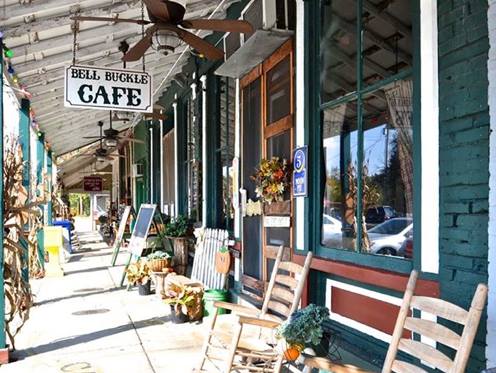
SOURCES
Telephone conversation with Tori Taff on December 6, 2013
Telephone conversation with Tori Taff on December 6, 2013
Author: Greg Freeman. Published January 17, 2014.
Copyright
Southern Edition
All Rights Reserved
Southern Edition
All Rights Reserved
All materials contained on this site, including text and images, are protected by copyright laws and may not be reproduced without prior written permission from the publisher. Where applicable, use of some items contained on this site may require permission from other copyright owners.
Fair Use of text from SouthernEdition.com is permitted to the extent allowed by copyright law. Proper citation is requested. Please use this guide when citing a Southern Edition article.
Contact Greg Freeman or SouthernEdition.comFair Use of text from SouthernEdition.com is permitted to the extent allowed by copyright law. Proper citation is requested. Please use this guide when citing a Southern Edition article.
